The 1619 Project by Nikole Hannah Jones
A dramatic expansion of the groundbreaking work of journalism. The 1619 Project by Nikole Hannah Jones. A New Origin Story offers a revealing vision of the American past and present.
In late August 1619, a ship arrived in the British colony of Virginia. Bearing a cargo of twenty to thirty enslaved people from Africa.
Their arrival led to a barbaric and unprecedented system of American chattel slavery that would last for the next 250 years.
This is sometimes referred to as the country’s original sin. But it is more than that: It is the source of so much that still defines the United States.
The 1619 Project is a long-form journalism endeavor developed by Nikole Hannah-Jones. Writers from The New York Times and The New York Times Magazine.
Which aims to reframe our understanding of American history. By placing slavery and its continuing legacy at the center of our national narrative. This new book expands on that work.
Weaving together eighteen essays. That explores the legacy of slavery in present-day America. With thirty-six poems and works of fiction that illuminate crucial moments of oppression. Struggle and resistance.
The essays show how the inheritance of 1619. Reaches into every part of contemporary American society. From politics, music, diet, traffic, and citizenship. To capitalism, religion, and our democracy itself.
This is a book that speaks to our current moment. Contextualizing the systems of race and caste within which we operate today.
It reveals long-glossed-over truths about our nation’s founding and construction. And the way that the legacy of slavery did not end with emancipation. But continues to shape contemporary American life.
What is the 1619 Project?
It's More Than A Book!
The project was dedicated to an issue of the magazine. To a re-examination of the legacy of slavery in the United States. On the anniversary of the 1619 arrival of the first enslaved people to Virginia.
This framing challenges the idea of American History. It began with the signing of the Declaration of Independence in 1776. Or with the arrival of the Pilgrims in 1620.
The project grew into a more significant endeavor. Encompassing many issues of the magazine.
With related materials in other Times publications. As well as a school curriculum. Developed in collaboration with the Pulitzer Center.
With support from the Smithsonian. The project recruited a panel of historians. To research, develop, and fact-check content.
The project was envisioned with the condition. All the content would be from African American contributors. Deeming the perspective of black writers is an essential element of the story to be told.
One of the claims made by Hannah-Jones. Is that the colonists fought the Revolutionary War to preserve slavery.
The claim was later softened to “some of” the colonists who fought to preserve slavery.
The essays further discuss details of History as well as modern American society. Such as traffic jams and the American affinity for sugar. And their connections to slavery and segregation.
Matthew Desmond’s essay argues that slavery has shaped modern capitalism and workplace norms.
Jamelle Bouie’s essay draws parallels between pro-slavery politics and modern right-wing politics.
Bouie argues that the United States has not let go of the assumption. That some people inherently deserve more power than others.
August 14, 2019, magazine issue
The first edition appeared in a 100-page issue of The New York Times Magazine on August 14, 2019.
It included ten written essays. A photo essay and an anthology of poems and fiction. With an introduction by editor-in-chief Jake Silverstein, as follows:
- “America Wasn’t a Democracy Until Black Americans Made It One.” Essay by Nikole Hannah-Jones
- “American Capitalism Is Brutal. You Can Trace That to the Plantation”, essay by Matthew Desmond.
- “How False Beliefs in Physical Racial Difference Still Live in Medicine Today.” Essay by Linda Villarosa
- “What the Reactionary Politics of 2019 Owe to the Politics of Slavery”, essay by Jamelle Bouie
- “Why Is Everyone Always Stealing Black Music?”, essay by Wesley Morris
- “How Segregation Caused Your Traffic Jam,” essay by Kevin Kruse
- “Why Doesn’t America Have Universal Healthcare? One Word: Race”, essay by Jeneen Interlandi
- “Why American Prisons Owe Their Cruelty to Slavery,” essay by Bryan Stevenson
- “The Barbaric History of Sugar in America,” essay by Khalil Gibran Muhammad
- “How America’s Vast Racial Wealth Gap Grew: By Plunder,” essay by Trymaine Lee
- “Their Ancestors Were Enslaved by Law. Now They’re Lawyers”. Photo essay by Djeneba Aduayom, with text from Nikole Hannah-Jones and Wadzanai Mhute
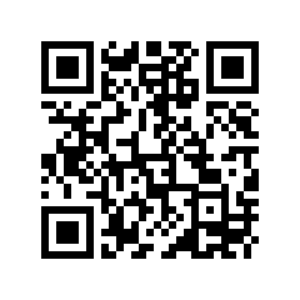
- QR Code for The 1619 Project by Nikole Hannah Jones
“A New Literary Timeline of African American History”. A collection of original poems and stories.
- Clint Smith on the Middle Passage
- Yusef Komunyakaa on Crispus Attucks
- Eve L. Ewing on Phillis Wheatley
- Reginald Dwayne Betts on the Fugitive Slave Act of 1793
- Barry Jenkins on Gabriel’s Rebellion
- Jesmyn Ward on the Act Prohibiting Importation of Slaves
- Tyehimba Jess on Black Seminoles
- Darryl Pinckney on the Emancipation Proclamation of 1863
- ZZ Packer on the New Orleans massacre of 1866
- Yaa Gyasi on the Tuskegee syphilis experiment
- Jacqueline Woodson on Sgt. Isaac Woodard
- Joshua Bennett on the Black Panther Party
- Lynn Nottage on the birth of hip-hop
- Kiese Laymon on the Rev. Jesse Jackson’s “rainbow coalition” speech
- Clint Smith on the Superdome after Hurricane Katrina
This fascinating conversation is among journalists, historians, poets, novelists, essayists, and photographers.
Lends a Technicolor depth to our American story. Opening a kaleidoscopic historical view. That leaves us to ponder voices and stories only now heard.
An exciting read, the 1619 Project responds to W.E.B DuBois’ once-asked question: “Nations reel and stagger on their way; they make hideous mistakes.
They commit frightful wrongs; they do great and beautiful things. And must we not best guide humanity by telling the truth about all this, as far as the truth is ascertainable?”
My Thoughts on The 1619 Project
I never understand the critics and those who are hell-bent on keeping the truth from the masses.
To watch generations of historians, go out of their way to tell only partial truths. It has been upsetting to witness.
I think that the 1619 Project matters to the history of this country. And it cannot be ignored.
It widens the historical lens. And to say otherwise. It would be gaslighting.
What are your thoughts on the 1619 Project: A New Origin? Leave them in the comments section.
Please follow me on your social platforms and share this review!
If you haven’t already bought the book. Whether you agree or not! It is a great read.
And stay connected by signing my email list.
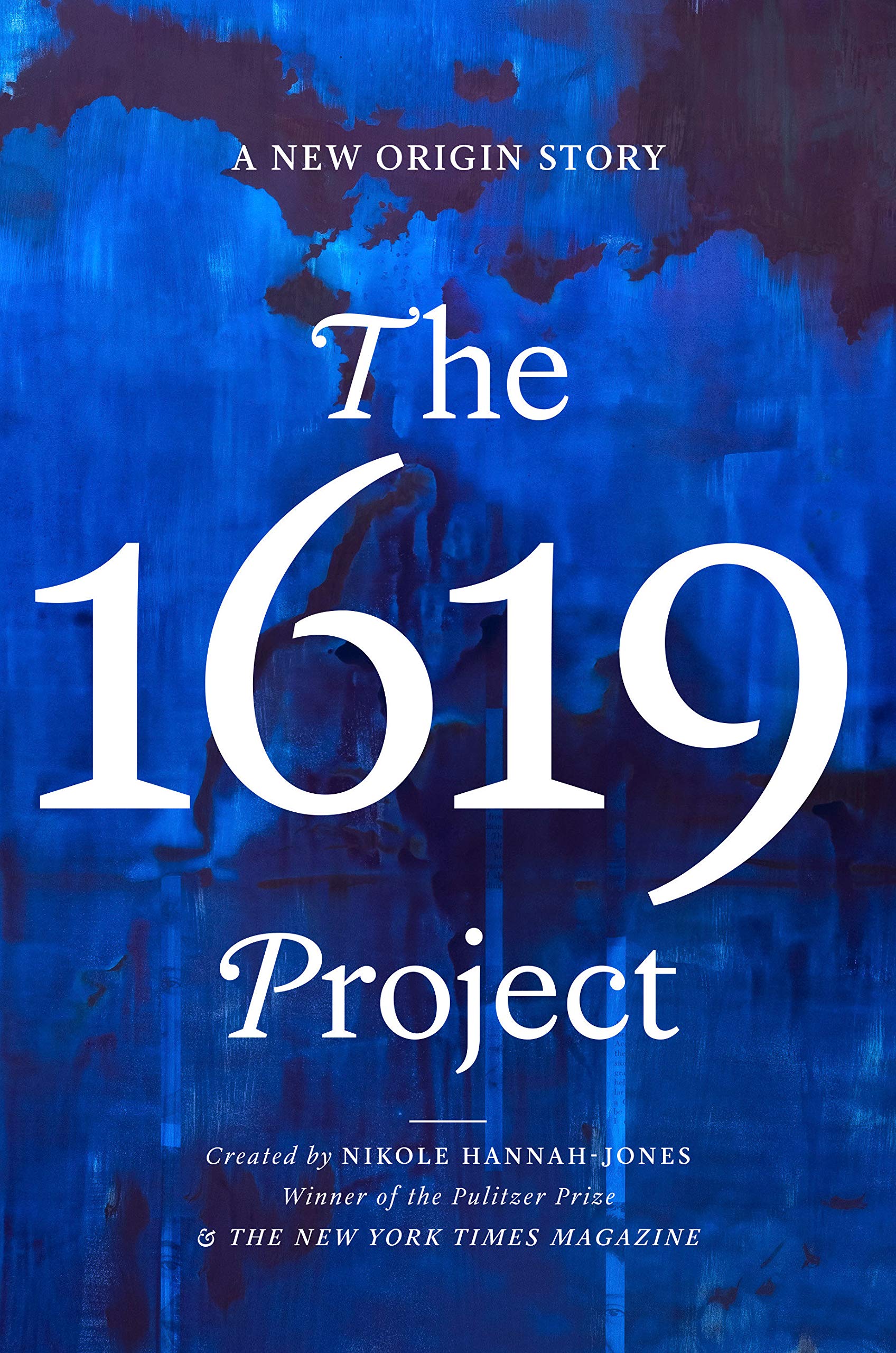
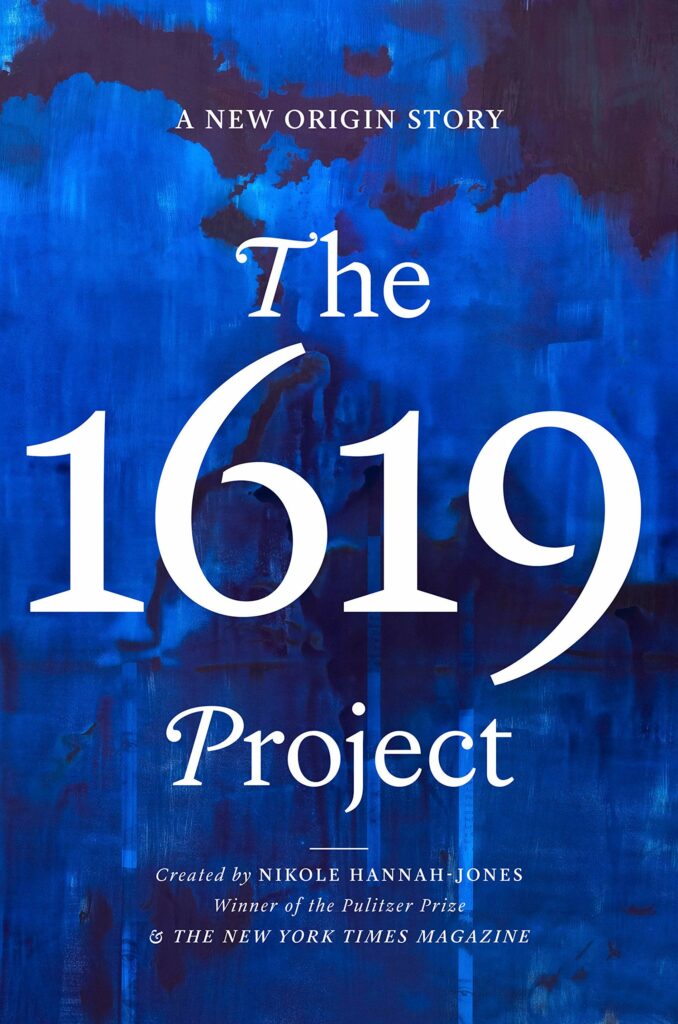
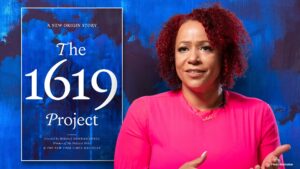
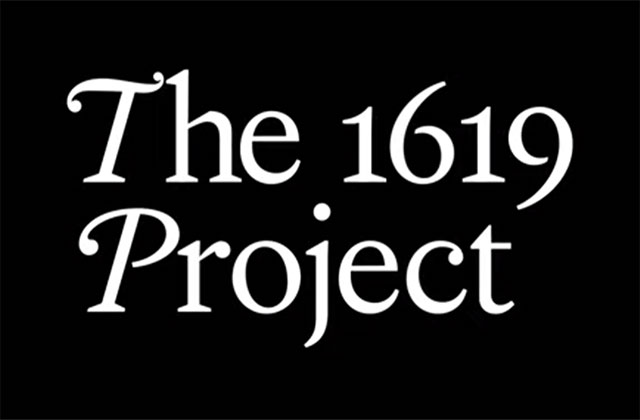

History can sometimes be misunderstood by some people who were not involved in the history. I am so impressed by this article since it tries to redefine the American history to those who roughly have an idea of what happened. I am also impressed by how the 250 people who were captured as slaves has been taken as a positive factor since it build the Americans to what they are now.
Thanks for your feedback, Johnny! Glad you enjoyed the read!
Really interesting article. Recently, I have tried getting more into reading but not just any book, books that will give me more knowledge and this book looks like it’s exactly what I need. I will be sure to purchase this book and give an honest review once I have read the entire book.
I look forward to your thoughts after you read the book. THank you for commenting on the post.
Hi Jamie, wow this looks like a fantastic endeavour exploring an important part of American history. I think there’s so much value in what we can learn from the past – the good and the bad. Great that there are creators like yourself who are inspired to explore these stories and disseminate the knowledge learned, so we can all improve our future. As you allude to in the article, there is sometimes a tendency for the mainstream to ‘cherry pick’ when it comes to historical references. We should acknowledge all of the behaviours and actions of our ancestors, this is how we can weigh up our progress as a society I think. Thanks, good stuff and like the song too!
Hi Will! Thank you for your comment. And I’m glad you liked the song! 😉